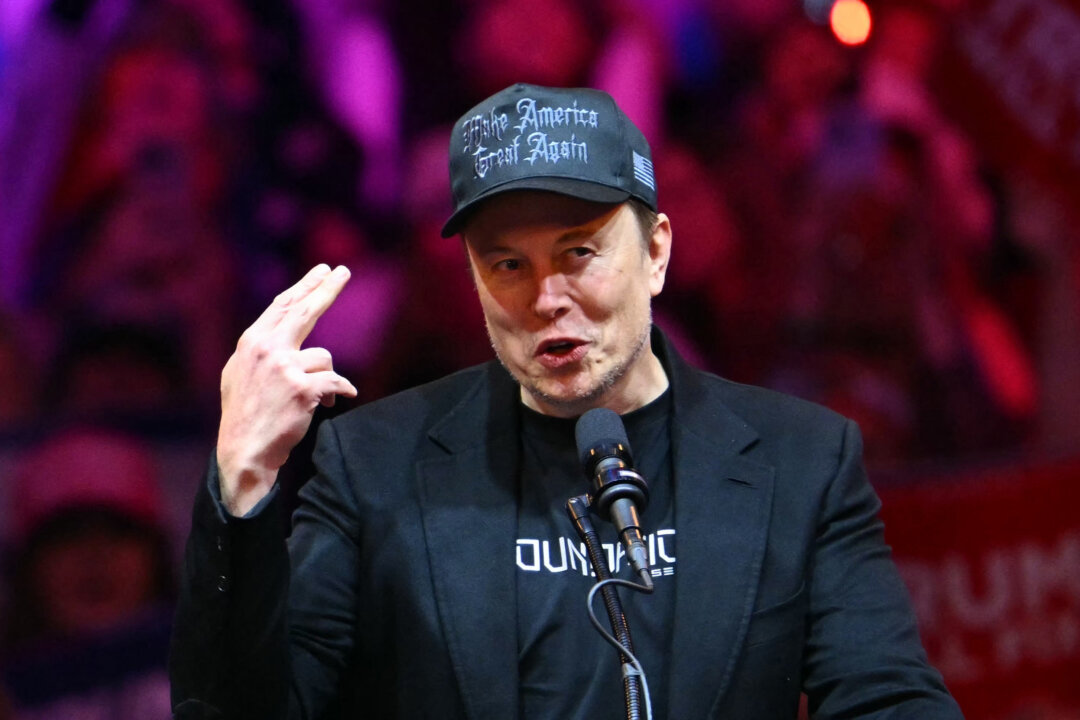The billionaire is accused of running the giveaway as an illegal lottery under Pennsylvania law.
The prosecution against billionaire Elon Musk’s $1 million giveaways must return to a Philadelphia court, a Pennsylvania federal judge ruled on Nov. 1.
Eastern District of Pennsylvania Judge Gerald Pappert said that Musk failed to identify “any question of federal law that must be resolved” before Philadelphia District Attorney Larry Krasner could continue suing Musk under state law.
Musk was supposed to appear before a judge in the Philadelphia County Court of Common Pleas on Oct. 31 but the case switched jurisdictions after he filed a notice of removal in federal court.
John Summers, an attorney arguing for Krasner, said during a hearing in the Philadelphia court that Musk was acting cowardly and suggested he used a legal maneuver to avoid a case wherein the facts weren’t on his side.
Court of Common Pleas Judge Angelo Foglietta concluded the hearing, stating that he no longer had jurisdiction over the case because the case had been transferred to federal court—which Musk said on X was “American Justice [for the win].”
Summers then filed an emergency motion on Oct. 31 to remand the case.
Musk previously challenged the state court’s jurisdiction by arguing that Krasner’s claims turn “principally on the allegation that Defendants are somehow unlawfully interfering with a federal election.”
In their notice of removal, Musk’s attorneys added that Krasner expressed concern about “independent expenditures to influence campaigns for federal office and the core political speech via petition gathering—both of which raise significant questions of federal law that are within the exclusive province of this Court.”
Musk’s attorneys also argued that removal was justified under a concept known as “diversity of citizenship” under federal law. A federal code—28 U.S. Code § 1332—states that district courts shall have original jurisdiction over civil actions between citizens of different states if the “matter in controversy exceeds the sum or value of $75,000.”
Because neither Musk nor America PAC are citizens of Pennsylvania, Musk’s attorneys said, diversity citizenship applied. They added that Krasner was not acting on behalf of the Commonwealth of Pennsylvania because he brought a civil rather than criminal complaint against Musk and the political action committee known as America PAC.
Pappert said instead that diversity of citizenship didn’t apply because Krasner acted as an “alter ego” of the Commonwealth in bringing civil cases. Under U.S. Supreme Court precedent, Pappert said, a state was not considered a citizen for the purposes of diversity of citizenship.
An attorney for Musk did not respond to a request for comment before publication time.
The federal judge’s order followed a somewhat contentious hearing presided by Foglietta in the state court, where Krasner was seeking an injunction blocking Musk’s giveaway in the state.
Krasner’s complaint alleged that the giveaway constituted an illegal lottery under Pennsylvania law and that Musk was targeting Pennsylvania to influence voters in the state. Specifically, it included two counts, with the first alleging Musk’s giveaway was a public nuisance and the second claiming that he and America PAC violated a state consumer protection law.
A lawyer for Musk argued that his client wasn’t a proper defendant in the case and that the prosecution should focus on America PAC instead of one of its donors. Summers responded in part by highlighting Musk’s role in announcing and promoting the contest.
“The 800-pound gorilla here is actually Elon Musk,” Summers told Foglietta.
So far, several individuals from Pennsylvania have won as part of the giveaway. The complaint cited a post on X in which America PAC said more than 280,000 registered voters in Pennsylvania had signed the petition, which makes them eligible for the giveaway.

